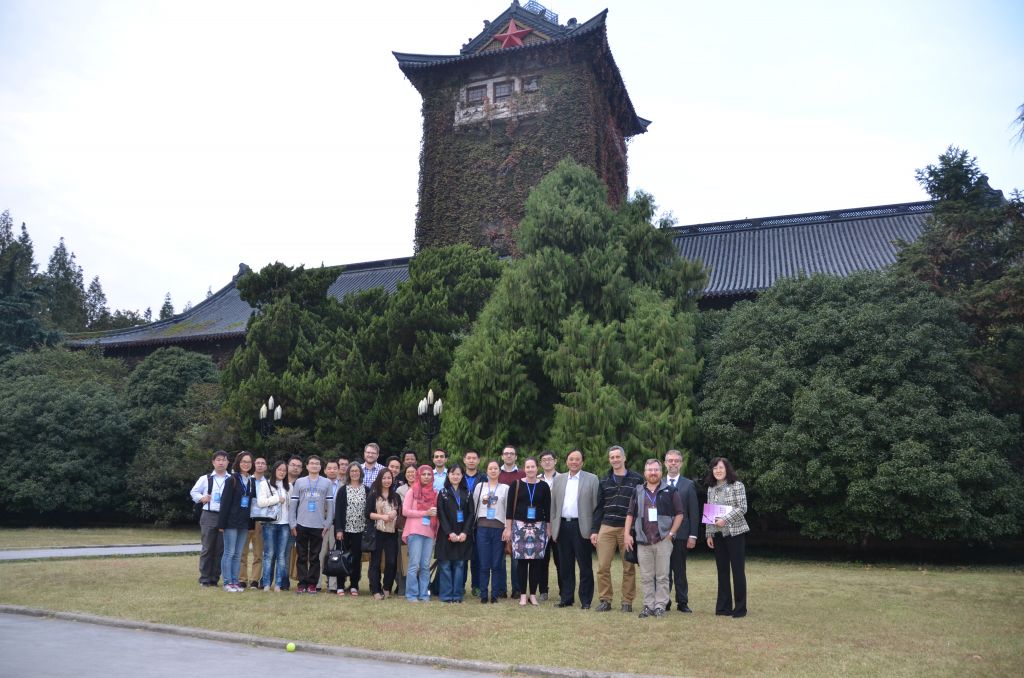October 28, 2015

Date: 28 Oct. to 1 Nov. 2015
Venue: Nanjing University
This C9-Go8 forum brought together 34 doctoral students from China and Australia to exchange ideas across disciplines and across national boundaries on key global issues relating to Big Data. The aim of this forum is to strengthen links between C9 and Go8 universities, facilitate collaboration between Australia and China and create academic and professional linkages between the future research leaders of the two countries.
With the rapid development and applications of modern Information and Corresponding Technologies, Big Data, following Cloud Computing, Internet of Things and Mobile Internet, has become a new hot topic in both the academia and industry. As one of the important strategic resources, Big Data is extensively affect the science, engineering, health care, finance, business and ultimately changing the society itself. It facilitates the cross-border integration between IT and industry by advancing the construction of smart cities, promotes information consumption, as well as the transformation and development of our current economy and society.
China today is formulating the “Internet +” plan, which is aimed at promoting the innovation of business model and scientific decision making that provides broad chance for big data analysis and application. However, the research and development of Big Data face many challenges from a global perspective, such as the lack of the top-level design, public platform system, industry policy and information security mechanism, especially the methods, tools and platforms of data modeling, storage, analysis and service. To solve all these problems, the key is to vigorously develop the big data engineering and construct the theoretical and practical systems of big data information service management.
Each of the participating Go8/C9 universities selected two students – one from the science/technology disciplines, one from the social sciences/humanities disciplines – potential leaders of the next generation of researchers – to present their perspectives on this topic within an interdisciplinary context.
While the program centred on the student presentations and the discussion of the issues that these raise, the forum included a wide range of complementary activities. These comprised keynote speeches by Australian and Chinese researchers of high international standing; and a social program designed to encourage and facilitate networking and the creation of professional linkages that provides one of the underlying objectives of the forum.
The student presentations covered a diverse set of studies related to Big Data. To give just some examples, these ranged from Information Diffusion in Social Networks, to Big Data Challenges in Cognitive Neuroscience; from Hidden Danger in Privacy in Big Data Era, to creating evidence-based healthy suburbs; from Using Big Data and Visualizations for Global Health Systems Performance Assessments to the future of international education data; and from developing internationally comparable carbon emission factors for crop and livestock products to the Big Data Lessons of Google Flu Trends.
The annual joint meeting between the Deans and Directors of Graduate Studies of the Go8 and C9 universities was held in association with the forum and provided an opportunity to exchange information on recent developments in the research training environments within each country.
This year is the sixth annual Go8-C9 PhD Forum since 2010. It was developed as a result of the MoU signed by the Go8-C9 DoGs at Canberra in 2009. The purpose was to create and strengthen professional and academic linkages between the future research leaders of Australia and China. The first five Go8-C9 PhD Forums were organised on a rotation basis between Go8 and C9 at Harvard University in 2010, Tsinghua University in 2011, The University of Queensland in 2012, Shanghai Jiao Tong University in 2013, and The University of New South Wales in 2014 respectively.






